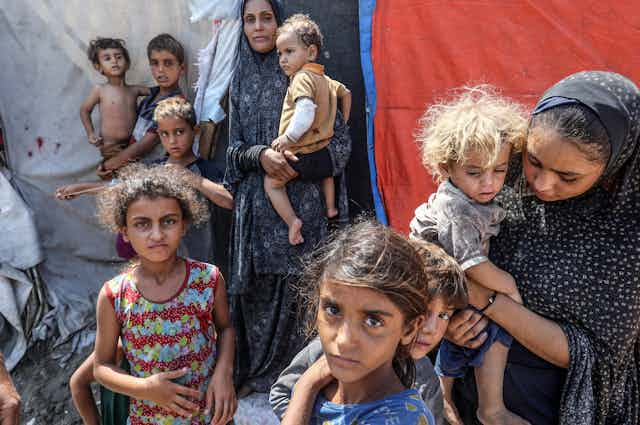The Complexities of a Hypothetical Israeli Military Capture of Gaza – By Dr Harold Gunatillake

Israel is prepared to authorise a new military strategy aimed at occupying the entire Gaza Strip.
Persistent Challenges, Underground Realities, and the Consequences of Escalation
Historically, the name “Israel” predates “Palestine” by over a thousand years. Subsequently, the land became predominantly inhabited by an Arab population for over a millennium.
Accordingly, both Jewish and Arab peoples possess legitimate claims to the territory.
Should the Israeli leadership under Benjamin Netanyahu succeed in a rapid military capture of Gaza within a few days, the challenging conditions on the ground would probably persist, characterised by profound and unresolved issues. Although territorial and superficial control might be achieved, the resilient capabilities of Hamas, especially their extensively entrenched underground networks, would continue to pose significant and formidable obstacles. This scenario highlights the potential for an extended conflict, self-destructive tendencies, and the strategic improbability of fully incorporating Gaza into an Israeli sphere of influence.
The Significance of Gaza to Hamas
Gaza is not merely a stronghold for Hamas; it constitutes the epicentre of its political authority and the foundation of its legitimacy. The territory offers the organisation several strategic advantages:
- Administrative Control: A platform for implementing policies, levying taxes, and exercising
- Military Operations: A geographical base for launching military actions and constructing subterranean
- Ideological Influence: A populace subjected to its educational, religious, and social programs, thereby shaping generational perspectives.
Consequently, losing Gaza would undermine the very core of Hamas’s identity and jeopardise its raison d’être as more than just a resistance movement—a governing entity.
The Enduring Underground Challenge
Image Source : gettyimages
Occupation of surface areas or military dominance in Gaza does not constitute a victory over Hamas. Over the years, Hamas has cultivated an extensive network of tunnels, bunkers, and subterranean passages beneath Gaza’s urban centres, refugee camps, and open terrains. These underground fortifications serve as command centres, weapons depots, and escape routes, making them elusive targets for conventional military operations.
Even if Israeli forces were to attain rapid control of the surface, the process of clearing and neutralising these concealed strongholds would necessitate considerable time, resources, and specialised operational capabilities. The ongoing cat-and-mouse dynamic between Israeli forces and Hamas fighters would likely intensify beneath the surface, resulting in protracted engagements, casualties on both sides, and increased risk of collateral damage to Gaza’s already fragile infrastructure and civilian population.
Asymmetric Warfare and the Resilience of Hamas
Asymmetric warfare constitutes a form of irregular warfare, characterised by conflicts in which adversaries are not conventional military forces of sovereign states. The term is often employed to denote what is also referred to as guerrilla warfare, insurgency, counterinsurgency, rebellion, terrorism, and counterterrorism.
Hamas’s strategy embodies the principles of asymmetric warfare, leveraging its relative weaknesses against Israel’s overwhelming military superiority. The group’s reliance on tunnels is a textbook adaptation, reminiscent of tactics used by insurgents in Vietnam, Afghanistan, and elsewhere. These subterranean routes allow Hamas to survive aerial bombardment, infiltrate behind enemy lines, and emerge unpredictably to attack Israeli forces. Even with Israeli troops controlling the surface, the persistence of an underground enemy presents a formidable challenge.
Israeli media say Netanyahu sees taking over Gaza as the only way to destroy Hamas and free hostages still held by the group following the breakdown of ceasefire talks.
Reports, however, indicate that the head of the military and some ministers disagree.
In its statement on Thursday evening, Hamas said Netanyahu was continuing “his approach of genocide and displacement”.
The Palestinian armed group also said the Israeli prime minister’s actions would “represent a clear reversal of the course of negotiations and reveal the true motives behind his withdrawal from the final round”.
The Israeli military currently controls about three-quarters of Gaza. The war has already displaced the vast majority of Gaza’s population, and many more would be uprooted if the army takes over the remaining areas. (BBC NEWS).
Humanitarian and Ethical Concerns
Image Source : theconversation.com
Gaza is home to more than two million inhabitants, the majority of whom are children and refugees. Extended periods of blockade, sporadic warfare, and persistent underdevelopment have severely damaged the enclave’s infrastructure and economy.
International organisations, including the United Nations, have consistently issued warnings regarding the dire humanitarian situation. Healthcare services are insufficient, and access to electricity
and clean water remains limited, with unemployment rates among the highest globally.
A new phase of direct control risks exacerbating these conditions, as military objectives frequently take precedence over the urgent needs of the civilian population. Limiting movement, obstructing aid access, and increasing surveillance could lead to increased alienation and resentment among Gazans. Furthermore, such measures often invite criticism from the international community, thereby complicating Israel’s diplomatic relations and threatening regional stability.
What we understand — and do not — regarding Israel’s strategy to assume control over Gaza City.
From CNN’s Helen Regan
The Israeli security cabinet’s approval of a plan for the military to assume control of Gaza City constitutes yet another significant escalation in Israel’s ongoing conflict within the beleaguered enclave.
During the cabinet’s decision, widespread protests erupted throughout Israel, driven by concerns that the decision to broaden military operations might jeopardise hostages. Concurrently, international pressure intensified on Israel to cease hostilities and to permit increased humanitarian aid into the region, as starvation conditions worsen.
The cabinet’s resolution involved the approval of a plan aimed at “defeating Hamas,” with the military preparing to seize control of Gaza City. This plan also includes provisions to ensure “the provision of humanitarian aid to the civilian population outside the combat zones.”
The security cabinet voted with a majority to endorse what it termed “the five principles for ending the war,” which encompass Israeli security control over Gaza and the establishment of a civilian administration that is neither Hamas nor the Palestinian Authority.
Latest Fox News- interview with Benjamin Netanyahu announcing Israel will take control of Gaza.
This is a must-watch after perusing the above script.
Thank you so much for taking the time to read through this article!






















